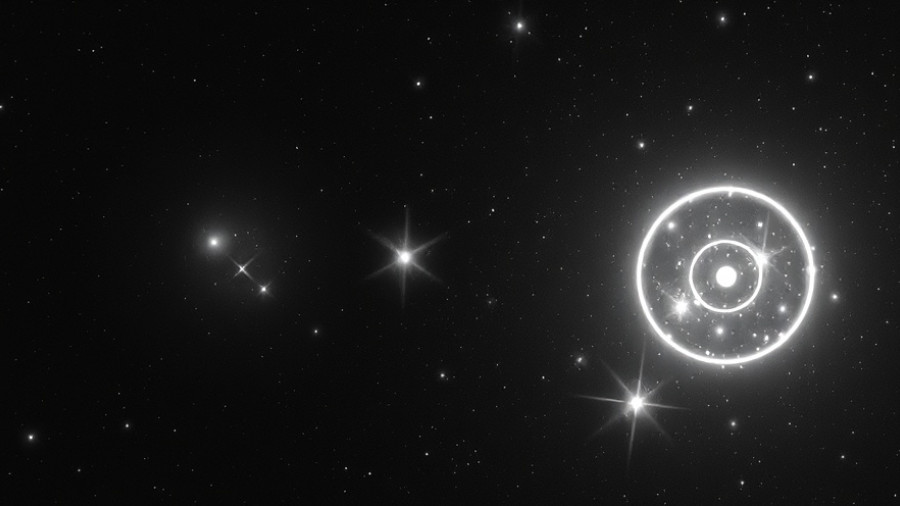
A New Era in Astronomy: Harnessing AI to Spot Celestial Wonders
In the universe where every twinkling star can follow a story, modern astronomy poses as a treasure hunt on a cosmic scale. Every night, telescopes, like vigilant eyes, scour the sky, hunting for temporary events, especially the grand spectacle of exploding stars, or supernovae. These events not only captivate our imagination but also reveal invaluable clues about the workings of our universe. However, astronomers face a daunting challenge: sorting through, quite literally, millions of alerts daily. A significant portion of these alerts turns out to be erroneous signals—bogus hints cast by insignificant satellite trails or cosmic ray phenomena.
AI Model Gemini: Learning from Minimal Data
Enter Google's groundbreaking AI model, Gemini, as an astronomy assistant that not only specializes in classifying cosmic events but also articulates its detective work in easily comprehensible terms. As reported in a recent publication in *Nature Astronomy*, Gemini exhibits unparalleled capabilities by achieving a staggering 93% accuracy across three different astronomical surveys, all while learning from just 15 curated examples per survey. This represents a profound evolution beyond traditional astronomical data analysis, which often depended on heavy data and specialized machine learning models.
Decoding the AI's Reasoning
Why does this matter? Traditional models used in astronomy have operated like opaque black boxes, offering mere "real" or "fake" classifications. If they mislabel exciting celestial events, repercussions can be far-reaching, resulting in missed discoveries and wasted time. For instance, next-generation telescopes like the Vera C. Rubin Observatory are expected to produce around 10 million alerts nightly, and an effective classification system is vital to prevent an insurmountable backlog.
Gemini, however, aims to break this mold. Not only does this innovative tool classify events, but it also provides a detailed rationale for its decisions, building trust and facilitating nuanced decision-making. By embracing few-shot learning, the AI can effectively classify transients from diverse astronomical surveys, even though it requires limited input data.
How Does Few-Shot Learning Work?
In contrast to conventional methods that necessitate massive annotated datasets, few-shot learning enables Gemini to grasp astronomical phenomena by simply digesting 15 examples for each survey. Each example consists of three images: a current transient alert, a reference image of the same sky section from past observations, and a difference image showcasing the transformation. This functional framework employs concise instructions and insightful notes to boost classification accuracy further.
Impact on Astronomers and Future Research
A pivotal step for this AI system is its capacity to assess certainty. Not only can it indicate classifications based on visual evidence, but it can also reflect on its own reliability through coherence scores. Recent assessments involving professional astronomers affirm the model's usefulness and coherence in its classifications. This ability to self-assess empowers astronomers to prioritize observation efforts on unclear classifications, facilitating a more efficient research environment.
The Broader Implications of AI in Scientific Discovery
Looking forward, the integration of AI like Gemini stands as a beacon of hope for numerous scientific explorations beyond astronomy. By leveraging minimal examples and natural language, this technology offers a swift platform to adapt to various scientific instruments and research objectives, ranging from biology to environmental sciences.
In essence, as the scientific landscape evolves, capable AI companions have the potential to revolutionize not just how we interpret vast cosmic data, but introduce emergent pathways for discovery in all fields. Imagine an AI assistant providing real-time analysis, suggesting follow-up observations, and guiding human scientists toward the most promising research trajectories.
Final Thoughts: The Future of Exploration
The ability of AI systems to enhance human reasoning is undeniably exciting. As we inch closer to a future where such technologies collaborate with researchers, the possibilities for subsequent generations of scientific discovery enter thrilling new terrains.
If you’re passionate about advancing science through technology, consider exploring how AI might power your industry. Stay tuned and embrace these exciting changes on the horizon.
 Add Row
Add Row  Add
Add 



Write A Comment